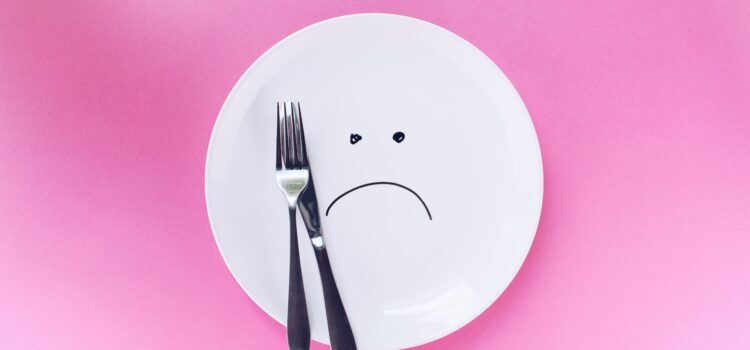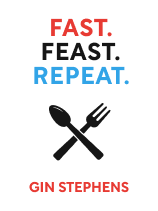

This article is an excerpt from the Shortform book guide to "Fast. Feast. Repeat." by Gin Stephens. Shortform has the world's best summaries and analyses of books you should be reading.
Like this article? Sign up for a free trial here .
What happens when you fast? How long does it take to start losing weight when fasting? What are the common side-effects of fasting?
When you fast for extended periods of time, your body goes into a fat-burning mode. However, it takes some time to start seeing weight loss—your body needs to adapt to tapping into your fat stores for energy. During this acclimation phase, you may feel some adverse effects, including lethargy, headaches, and fatigue.
Keep reading to learn what happens in your body when you fast.
The Fasted State
To understand what happens when you fast, you need to understand how your body stores energy. When we eat, our blood glucose (blood sugar) levels increase. In response, our bodies release insulin, a hormone that stores excess glucose in the liver and muscles as glycogen. If any blood glucose remains after this step, insulin converts it into fat and stores it away.
By storing this glucose-based energy, insulin lowers your blood glucose. When your blood sugar runs out and you need energy, the pancreas signals for your liver to release some of its stored glycogen to use as energy. When those glycogen stores run out, you enter the fasted state.
In the fasted state, your body converts your fat stores into ketones, a fat-based energy source. Put another way, you’ll burn your fat as fuel (a state called ketosis). We evolved to burn fat for energy when food was scarce, so you’ll do so only after depleting your blood glucose and glycogen stores.
Since insulin releases when you eat, fasting allows insulin levels to decrease. Then you can use up your liver’s stores of glycogen and begin to access your fat stores. If you fast often enough, your body will “remember” it has fat stores to burn for energy.
Common Changes While Adapting to Fasting
Once you begin fasting, your body needs to get used to fasting instead of having the glucose from consistent eating. When that glucose isn’t available, you might experience lethargy, headaches, and fatigue. This means your body is depleting your glycogen stores. After a few weeks (usually three to four, or eight at most), you’ll experience heightened energy and ease during your fasts.
Stephens stresses that it’s fine if you get hungry during your fast—this happens to everyone. Know that hunger tends to come in waves that pass. It won’t build forever or overwhelm you. However, your appetite will likely increase since your body can’t access your fat stores very well yet. Once your body learns to access fat for energy, your appetite will settle down.
(Shortform note: Harvard Health explains that alternate-day fasting causes headaches and lethargy more often than time-restricted eating. If you experience severe pains, they recommend using TRE instead of ADF or fasting less frequently. In addition, they note that fasting often causes overeating since your appetite hormones ramp up while you aren’t eating. To avoid this, they recommend easing into IF by gradually decreasing your eating window over a period of several months—much more gradually than Stephens prescribes.)

———End of Preview———
Like what you just read? Read the rest of the world's best book summary and analysis of Gin Stephens's "Fast. Feast. Repeat." at Shortform .
Here's what you'll find in our full Fast. Feast. Repeat. summary :
- How intermittent fasting can help you lose weight, feel better, fight disease, and live longer
- An explanation of the cutting-edge science that supports fasting
- How to follow a four-week quickstart program to adapt to this new lifestyle






